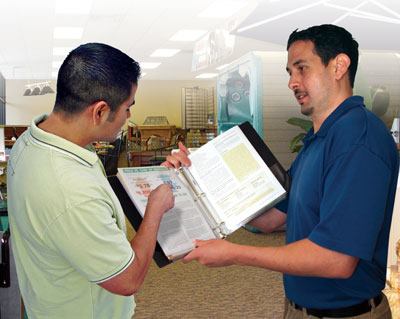It’s no secret that there are huge health benefits to owning a hot tub. But unfortunately, getting your hands on the actual data to show a client can be time consuming.
Luckily, that could soon change.
The International Hot Tub Association is in the process of coordinating with manufacturers and other organizations to create an Internet clearinghouse of all research regarding hot water immersion.
“The goal is for the IHTA to develop a database of material that supports the accepted theory that the massaging waters of hot tubs provide many health benefits,” says Andy Tournas, head of IHTA and president of ThermoSpas Inc. in Wallingford, Conn.
The effort reflects a new trend in portable spa buying. “I have seen a greater interest this year in consumers buying hot tubs for therapy more so than relaxation and entertainment,” he adds.
The Website is slated to be launched this month with a preliminary collection of research. At that time, Tournas and company will begin actively reaching out to industry members to gather more data.
The database is currently comprised of studies from sources including the Arthritis Foundation, the National Sleep Foundation and the Mayo Clinic, which the group began collecting last spring. Articles from medical journals, as well as industry trade magazines, also will be incorporated. Studies from sources like these, such as “Spas, Pools and Arthritis,” “Hot Tub Therapy For People With Diabetes” and “Cardiovascular Responses to Immersion in a Hot Tubs” will be tagged and filed in a content management system.
“We would like users to be able to search, view and access the content online regardless of the article’s format,” says Matt Bryers, who is helping to construct the site for the IHTA. Some articles may be categorized using more than one tag to make searches more comprehensive. That way, any dealer confronted with a possible buyer that voices health concerns could perform a simple online search and provide related data instantaneously.
Those that conduct hot-water immersion research feel the new database will be a boon for the market.
“When I go to shows with a lot of hot tub dealers, I ask if they’re familiar with the money that has gone into research about the benefits of [their product],” says Tom Lachocki, CEO of the National Swimming Pool Foundation in Colorado Springs, Colo. His group has funneled more than $1 million into related research, but has yet to see it fully disseminated among dealers. “Every hot tub retailer should be familiar with the real information available that links those benefits to the values of their customers.”
The database could also help create more trust between consumers and salespeople.
“The demographics on customers typically show a higher-education individual,” Lachocki adds. “Instead of a 23-year-old salesperson telling this information to a 50-year-old physician, they can provide a written account [printed from the IHTA database] that verifies it.”
The online hub won’t be for dealer use only. Tournas hopes it will eventually be of value to the public, too, as the nation becomes increasingly more health conscious.
As the portable spa market improves, the IHTA’s long-term goal for the database is to encourage state and federal governments to provide tax incentives for the purchase of a hot tub. The group will also pursue consumer compensation from insurance companies by showing that warm-water therapy is less costly than alternative treatments. Although such assistance exists in some areas on a smaller scale, with greater manufacturer participation and additional funding, Tournas believes that more consistent, widespread results will be possible.




